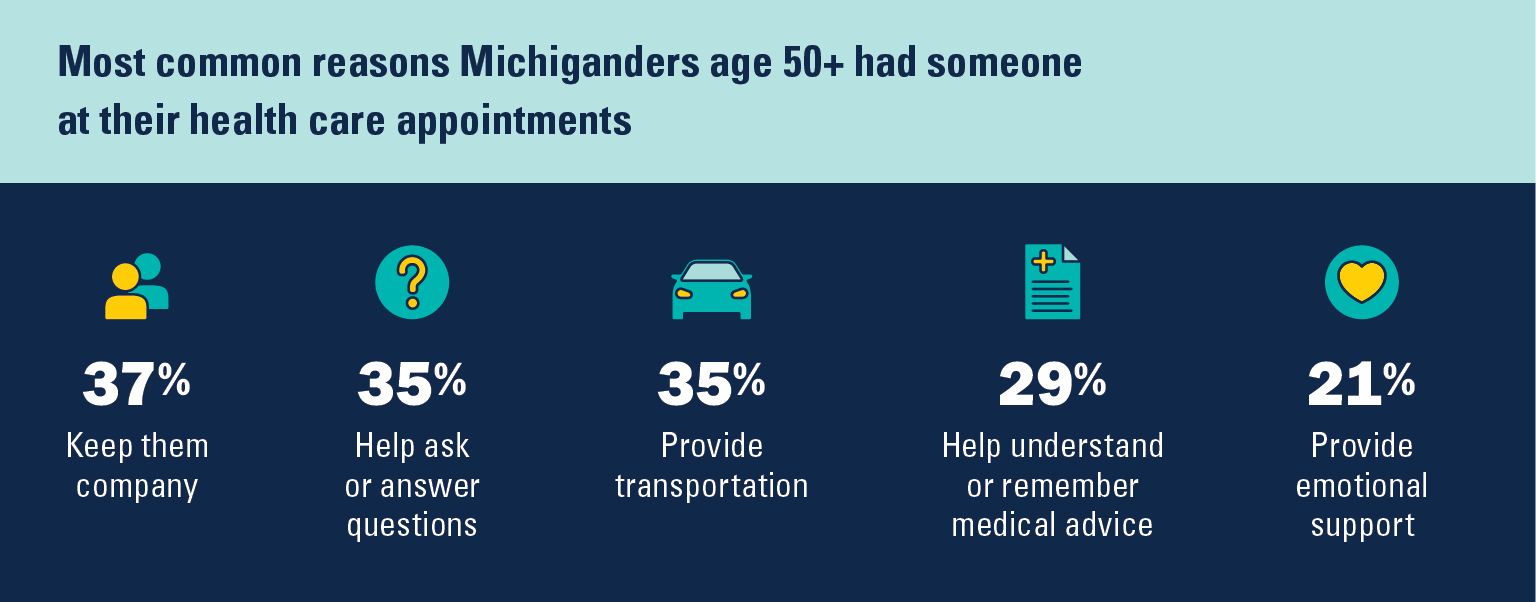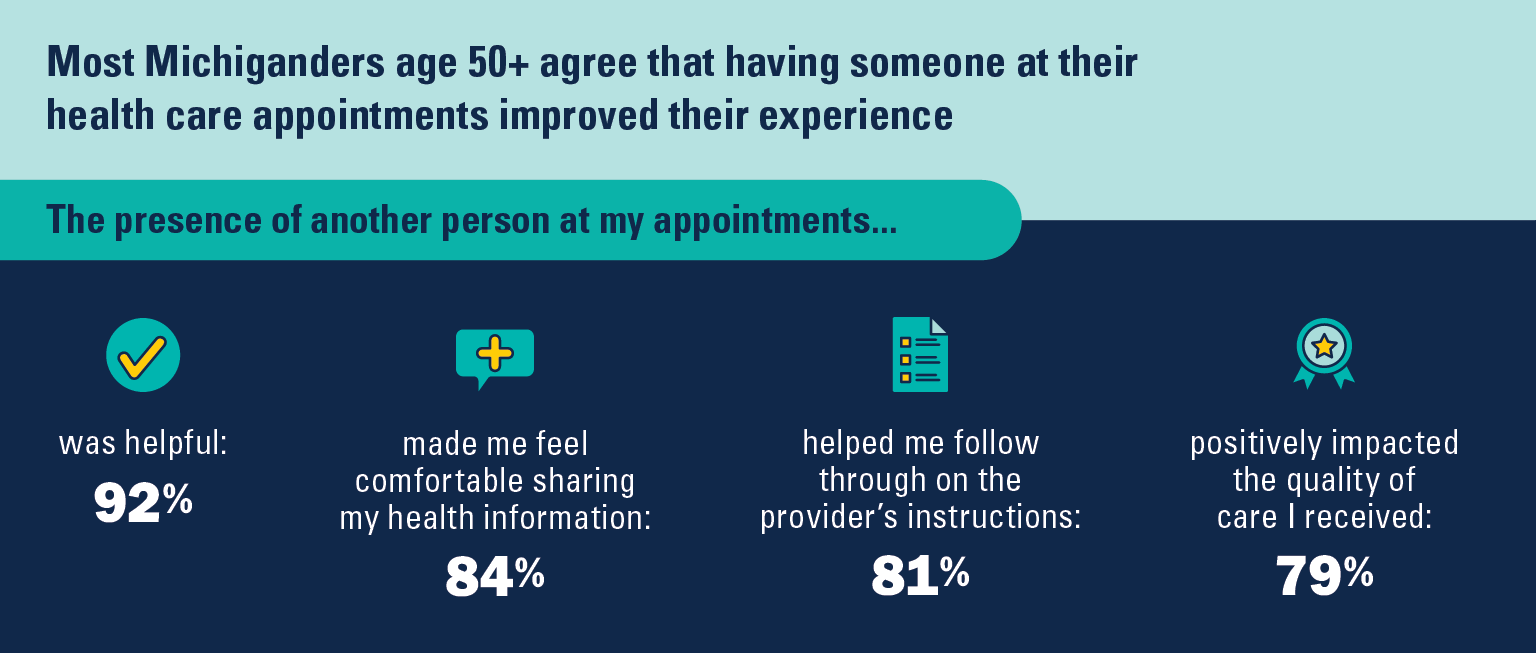
Key Findings in Michigan
- 37% of Michiganders age 50 and older who had one or more health care appointments in the past year had someone accompany them to at least one appointment.
- 33% of older Michiganders have gone to a health care appointment with another person age 50 or older in the past year.
- 92% of Michiganders age 50 or older who had someone with them at a health care visit, and 99% who accompanied another older adult to theirs, said it was helpful.
Nearly all of those 50 or older who had someone with them at a health care visit, or accompanied someone else, said it was helpful
Just like Michigan’s two peninsulas team up to make a great state, a new study shows that many of Michigan’s older adults are teaming up to get the most out of their health care appointments.
New data from the Michigan Poll on Healthy Aging, based at the University of Michigan Institute for Healthcare Policy and Innovation (IHPI) and funded by the Michigan Health Endowment Fund, examine how older Michiganders are acting as “health care companions” for one another by going to a health appointment with another older adult, or bringing someone along to their own appointment.
In all, 37% of people age 50 and older who had at least one health appointment in the past year had someone accompany them to at least one of those appointments. On the flip side, 33% of older Michiganders have gone to an appointment with another person age 50 or older in that same time.
The vast majority of both groups said this practice was helpful, including 92% of those who had someone at their health care appointment, and 99% of those who had gone to an appointment with someone else.
These findings are similar to those from across the United States, according to data being released simultaneously by the National Poll on Healthy Aging, supported by Michigan Medicine, U-M’s academic medical center.
Full Michigan findings can be found on an interactive dashboard at https://michmed.org/Q9veZ. The dashboard includes national data for comparison.

“With 92% of Michiganders age 50 and older going to at least one health care appointment in the past year, and 29% having five or more appointments in that time, these findings suggest an opportunity for even more support during these appointments,” said poll director Jeffrey Kullgren, M.D., M.P.H., M.S., a primary care physician at the VA Ann Arbor Healthcare System and an associate professor of internal medicine at the U-M Medical School. “Health systems and clinics should encourage this practice, and find ways to support those who may wish to have a second person in their appointment but don’t have someone who can join.”
The poll shows that Michiganders who did bring a health care companion most often brought their spouses or partners (69%) or adult children (18%). Those who acted as a health care companion for someone else most often did it for a spouse or partner (60%) or parent (24%). But health care companions also included other relatives, friends and neighbors.
Health care companions provided company and emotional support, helped with asking or answering questions, aided in transportation and mobility, and helped patients understand or remember the advice their doctor or other health care provider gave during the visit.
Most Michiganders who brought a health care companion said it made them feel more comfortable sharing information (84%) or positively impacted the quality of the care they received (79%). And nearly all of those who acted as a health care companion for another older adult said they believed they had positively impacted the quality of care (89%) and helped the patient follow through on the provider’s instructions (92%).

Among older Michiganders who did not bring a health care companion to an appointment in the last year, 78% said they didn’t need help, and 20% said they prefer not to have someone with them. But 12% said it was because they didn’t want to be a burden, and 6% said they didn’t have anyone who could accompany them.
The national poll findings come from a nationally representative survey conducted by NORC at the University of Chicago for IHPI and administered online and via phone in February 2025 among 1,353 Michigan adults age 50-95 and to 2,528 non-Michigan adults ages 50 to 97. The sample was subsequently weighted to reflect the Michigan and national (non-Michigan) populations.
Read past National Poll on Healthy Aging reports and about the poll methodology.